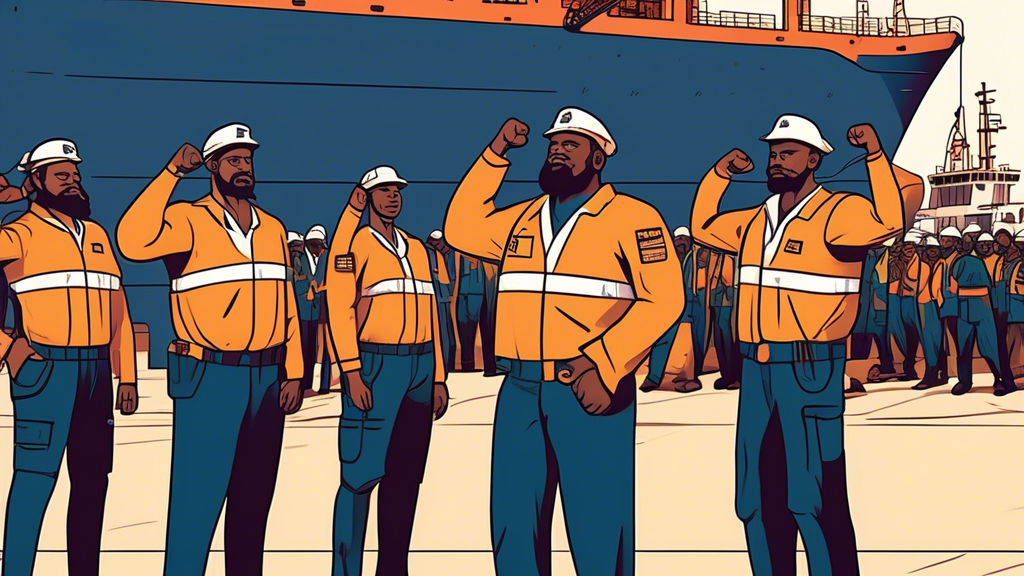
Longshoremen Suspend Strike Until January 15, Provide Support to Kamala Harris
The International Longshoremen’s Association (ILA) has temporarily suspended its strike, affecting tens of thousands of dockworkers along the U.S. East Coast, until January 15, 2025. This decision follows a tentative agreement on wages and an extension of their expired contract with the shipping industry.
Strike Pause: A Strategic Move
The pause in the strike, which had escalated to a significant labor action across 14 of the country’s busiest ports, allows dockworkers to resume operations immediately under the Master Contract. This measure is expected to alleviate mounting tensions and allow both parties to negotiate further without the looming threat of a full strike.
Impact on the Economy
Without the strike suspension, experts estimated that the U.S. economy could have faced losses exceeding $5 billion per day. Given the upcoming presidential election, in which Vice President Kamala Harris is a key candidate, the timing of this pause is critical. It prevents an economic disruption that could adversely affect Harris’s campaign and bolster public perception amid ongoing economic challenges.
Union and Employer Agreement
In the wake of the agreement, the ILA and shipping employers agreed to halt all strikes and job actions, thereby restoring normal operations. This collaborative effort is essential not only for immediate relief but also for the longer-term stability of the shipping industry and the economy at large.
Supply Chain Concerns Addressed
The pre-pause strike had already led to significant congestion at ports, with numerous container ships stranded outside major U.S. ports. This disruption threatened to trigger shortages of critical goods, affecting everything from food supplies to automotive parts. By pausing the strike, both union leaders and industry employers aim to mitigate further complications in the supply chain.
Economic Consequences Averted
Had the strike persisted, the ramifications could have been dire, not just for the economy but also for consumers facing increased prices and product shortages. The ILA’s demands for more substantial pay increases and guarantees against automation reflect ongoing concerns among workers regarding job security and compensation in a rapidly evolving industry.
Political Implications
The suspension of the strike also offers a lifeline for Vice President Kamala Harris, as economic stability is crucial for her presidential ambitions. By averting what could have been a devastating economic crisis, the agreement helps her maintain a stronger position as she campaigns for election.
Union Demands and Future Negotiations
The ILA has been vocal in its demands for significant pay raises and protections against potential job losses linked to automation in port operations. Although the employers proposed a 50% pay increase, union leaders deemed it insufficient. Future negotiations will likely continue to center on these critical issues, as dockworkers seek to secure better terms for their labor.
Conclusion
In summary, the decision to suspend the longshoremen’s strike marks a pivotal moment for both the dockworkers’ union and the broader U.S. economy. As shipping resumes and negotiations continue, stakeholders will be keenly observing how this situation unfolds in the coming months.
